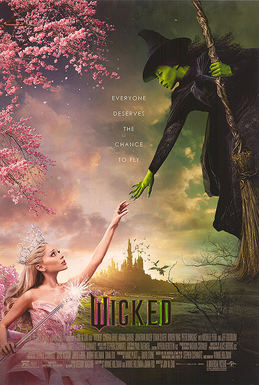“Moonlight” Gets the Upper-hand
While 10 films are usually nominated at the Oscars, it seems the battle for the best film award is really only between two movies. Every Oscar season, two movies always rise above to be contenders for the best picture. These two giants of cinema puzzle critics and viewers as the season nears. On Sunday February 26th, both of these films won. Well, kind of.
The presenters for best film, actors Faye Dunaway and Warren Buffet, were handed the wrong envelope, the one designated for best actress. Confused by the mishap, Dunway mistakenly called out “La La Land” as the best picture. The producers of “La La Land” then ascended the stage to give their speeches.
However, just as one producer finished his speech, someone announced that there was a mistake. “Moonlight” was then awarded the best picture Oscar. The cast and crew of “Moonlight“ then went to the stage to accept their award, but the decision to give the Oscar statute to “Moonlight“ was controversial far before this moment.
“Moonlight“ was the first film centered around LGBT people, and the first movie with an entirely black cast to win a statute from the Academy. However,both “La La Land” and “Moonlight” are considered extremely well-done films. “La La Land” paints a picture of dreams and the unexpected realities that hide behind them, where “Moonlight” is an engrossing story of youth, poverty and pain. Both are centered around relationships and deal with how characters grow and accept their realities. However, as good as these two films are “La La Land” by no means deserved the Oscar. Here’s why.
“La La Land” is a story ultimately about people with nostalgic views. The film is rooted in this topic, and its influence can be seen from the Fred Astaire inspired dance numbers, to the poster of Ingrid Bergman in a character’s room. Even the plot swoons around characters nostalgic stubbornness and how it stops them from achieving success. The film is both a celebration of those who dream for a different Hollywood and music world, but also a cautionary tale. The plot of “La La Land” is also fairly reminiscent of other Hollywood movies that involve a couple who ultimately fades apart despite their still-intense affections for each other. Its ending, and ultimately the film itself, is inspired from other movies like “Casablanca” and “The Way We Were.” This nostalgia is an essential part of the film. But, with the central themes of nostalgia, “La La Land” loses originality.
“Moonlight“ is something new, something that deals with complex social issues without including the explicit corniness that usually is included with most political films. “Moonlight“ is a dramatic opera, one that address poverty, addiction, homophobia and youth. The story is tragic, but unknown and mainly unheard. There’s not a lot of movies about black gay people growing up poor, but there’s a lot about people following their dreams and falling in love. “Moonlight“ offers not only a story that we don’t see enough, but excels in the creation of this story, and makes it into something that is beautiful but painful to watch. The Academy should reward films that are unique and revolutionary, more than films that are more about their influences than creativity.
Overall, “La La Land”and “Moonlight“ are undoubtedly good films, films that deserved to be nominated and to be as celebrated. In the end, it was right for the Academy to choose an original and different film, rather than one that’s more of a scramble of hundreds of other films and celebrated tropes. The Academy’s decision to choose a film that was unique and tackled relevant social themes, instead of one that was only concerned with other movies of the past, was surprising, but undoubtedly fitting for the times we find ourselves in today.









